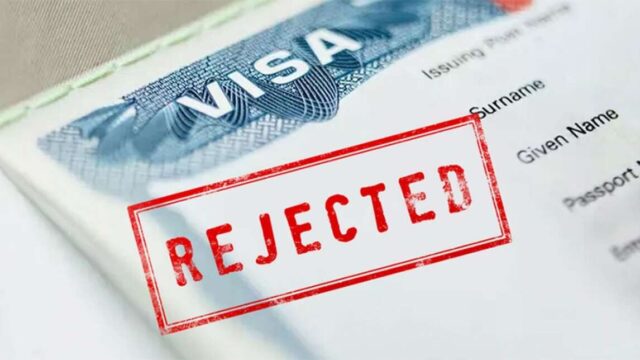
Canada has long been a land of opportunity and promise for immigrants seeking a better life and new beginnings. Each year, thousands of individuals from around the world submit immigration applications with dreams of making Canada their home.
However, not all applications are successful, and the reality is that some applicants receive a heartbreaking denial. The significance of denied immigration applications cannot be understated, as it can disrupt plans, separate families, and shatter dreams.
In this blog post, we aim to guide readers through the process of appealing a denied immigration application in Canada, providing valuable insights and tips to navigate the intricate path towards a possible approval.
Understand the Reason for the Denial

When faced with a denied immigration application, the first step is to understand the reasons behind the decision. Knowing the specific grounds for denial is crucial as it enables applicants to address any weaknesses in their initial submission.
Obtaining the official denial notice from the immigration authorities is essential, as it outlines the reasons for refusal and provides clarity on the areas that need improvement.
To obtain the denial notice, applicants should follow the instructions provided in the rejection letter and request the necessary documentation promptly.
Review the Eligibility Criteria
Understanding the eligibility criteria for the immigration program applied for is fundamental before proceeding with an appeal. Reviewing the requirements will help applicants assess whether they genuinely meet the necessary qualifications.
It is vital to be honest and objective during this self-assessment to avoid wasting time and resources on an appeal that may not have a solid foundation. If the applicant is uncertain about any aspect of the eligibility criteria, seeking advice from an immigration expert or lawyer can provide much-needed clarity.
Consult with an Immigration Lawyer

Appealing a denied immigration application can be a complex and daunting process, and having professional legal guidance can make a world of difference. Consulting with an experienced immigration lawyer is highly recommended, as they can provide personalized advice based on the applicant’s unique circumstances.
A skilled lawyer can review the case thoroughly, identify potential issues, and develop a strong appeal strategy. To find a reputable Canada immigration lawyer, applicants can seek recommendations from friends, family, or colleagues or explore reputable legal directories and organizations.
Gather Additional Supporting Documents
After identifying the weaknesses in the initial application, applicants should take proactive steps to strengthen their case. This includes gathering any missing or supplementary documents that could bolster their appeal.
The types of documents required will vary depending on the specific grounds for denial and the immigration program. Common additional documents may include updated financial records, educational qualifications, employment details, language proficiency test results, and letters of support from family members or employers.
Complete the Appeal Forms

Once the necessary supporting documents are compiled, the appeal process can begin. Different immigration programs have specific appeal forms that applicants must complete accurately.
It is crucial to follow the instructions provided and provide all required information in a clear and concise manner. To ensure the most up-to-date and official forms are used, applicants should access them from the appropriate government websites or immigration authorities.
Compose a Convincing Appeal Letter
A well-crafted appeal letter can play a significant role in the success of the appeal. It offers applicants an opportunity to present their case persuasively, addressing the reasons for denial and providing new and compelling information.
The appeal letter should be articulate, logical, and respectful, clearly outlining the applicant’s commitment to meeting the eligibility criteria and their genuine desire to contribute positively to Canada’s society and economy. Applicants should ensure that they adhere to any specific guidelines provided by the immigration authorities regarding the appeal letter.
Submitting the Appeal

Timing is critical when submitting an appeal, as there are strict deadlines that applicants must adhere to. Failing to meet the deadline could lead to the appeal not being considered.
Therefore, applicants must diligently note the appeal submission date and ensure all relevant documents are sent in a timely manner. It is advisable to submit the appeal via a trackable method to confirm its receipt by the immigration authorities.
Understanding the Appeal Review Process
Once the appeal is submitted, applicants may wonder about the next steps and the potential timeline for a decision. The appeal review process can be intricate and time-consuming, and the waiting period can be nerve-wracking. Generally, appeals are first assessed for completeness and then assigned to an immigration officer for thorough examination.
The processing time can vary based on the complexity of the case and the volume of appeals being processed. During this time, applicants should maintain open communication with their lawyer and be prepared for any additional inquiries from the immigration authorities.
Attending an Appeal Hearing

In some cases, the immigration authorities may schedule an appeal hearing, giving applicants the opportunity to present their case in person. While not all appeals have hearings, being prepared for one is crucial.
Applicants should familiarize themselves with the appeal hearing process and be ready to present their arguments concisely and confidently. Having legal representation during the hearing can be immensely beneficial, as experienced immigration lawyers can advocate on the applicant’s behalf, address any questions or concerns raised by the immigration officer, and help strengthen the case further.
Options after the Appeal Decision
After weeks or months of anticipation, applicants will receive the final decision on their appeal. There are three possible outcomes: approval, rejection, or a referral for further steps. If the appeal is successful, congratulations are in order, and the applicant can proceed with the next steps outlined by the immigration authorities.
However, if the appeal is rejected, the disappointment can be disheartening. Yet, there are alternative options to consider. Applicants can explore the possibility of reapplying once their circumstances change or if they obtain additional qualifications or documents that may positively impact their application.
Seeking Ministerial Intervention

In certain exceptional cases where all appeal options seem exhausted, applicants may have the option of seeking ministerial intervention. This process involves requesting a senior government official to personally review the case and make a decision based on humanitarian or compassionate grounds.
Ministerial intervention is an extraordinary measure and is typically considered when there are compelling reasons why the applicant’s situation merits special consideration.
However, it is essential to recognize that the likelihood of success in seeking ministerial intervention is relatively low, and applicants should consult with their immigration lawyer before pursuing this route.












